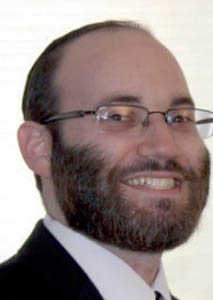
As a new Jewish year begins, we must take the opportunity to look for ways to improve our behavior. We are the generation that has seen the rise of the internet and social media, and we are still experimenting with these new tools, learning what works and what doesn’t. I am a fan and avid user of social media but believe that we (myself included) have a lot of room for improvement in how we use it. There are many lessons we can explore about better usage, but I would like to focus on one, perhaps less obvious, aspect. In a local Jewish newspaper, I recently read a letter to the editor from a middle-aged single woman who guiltily admitted to experiencing profound sadness when seeing pictures on social media of other people’s lifecycle events that she will never experience—giving birth, making bar mitzvahs, marrying off a child, etc.
I had two simultaneous reactions to this letter. I understood her pain and saw how difficult it must be to witness other people enjoying a life that you so desperately want for yourself. However, I also wondered how people can be told not to share their joyous occasions. Isn’t celebrating (and mourning) together an essential part of a community? If we keep those lifecycle events private out of respect for those who cannot experience that unique joy, we diminish the extent of the communal reach into our lives. Must we severely handicap the community to avoid offending others? The answer to these two competing concerns, as with so much in life, lies in maintaining a careful balance.
The Evil Eye
Those steeped in Jewish cultural practice are familiar with the varieties of the phrase kainainahara, (mis)pronounced differently, depending on geographic origin. They all mean the same thing: “without ayin hara, the evil eye.” What is the evil eye? The Talmud discusses it in a number of places. For example, someone who becomes wealthy must fulfill additional commandments in order to avoid ayin hara (Eruvin 64a-b in Rashi). Similarly, you are not allowed to stand at the edge of someone’s unfenced field and stare at it because you might damage it through ayin hara (Bava Batra 2b in Rashi). Some understand ayin hara as a mystical method of inflicting damage. Rav Eliyahu Dessler (Michtav MeEliyahu, vol. 3 p. 314, vol. 4 p. 6) takes a non-mystical approach. He explains that ayin hara is the impact of causing someone else to be jealous. If you enjoy success publicly, others may wrongly be jealous of your good fortune. Causing their jealousy, even unintentionally, is in itself a religious failing that is punished with the damage of ayin hara.
The Orchot Tzadikim (ch. 14) writes similarly: “The early sages would pray, ‘Do not let our jealousy be on others nor other people’s jealousy on us.’ Why would they pray about other people regarding this character trait and not others? This is the explanation: Many people cause others to be jealous and desire their fields. Therefore, people would pray about others, because maybe they were causing others to be jealous, and the Torah (Lev. 19:14) says, ‘Do not place a stumbling block before a blind person.’”
Often, conspicuous behavior—driving a fancy car, making a lavish party—is intentionally designed to stir jealousy. Even when it is done for other reasons, the outcome is almost inevitable. If you cause someone else to become jealous, you are guilty of causing him to sin.
The Orchot Tzadikim continues: “Therefore, it is proper behavior for a man—and his wife and children—not to wear clothes that are overly nice or fancy. The same applies to food and other similar items. This is to prevent others from being jealous of him.” Conspicuous consumption leads to unhappiness, jealousy, ayin hara. The Joneses, with whom everyone is trying to keep up, are religiously guilty of inspiring jealousy.
Appropriately Sharing
Presumably, the same applies to sharing pictures of our joyous occasions. If we cause other people jealousy, even unintentionally, we are guilty and risk the ayin hara consequences. However, stifling celebration is not the answer to other people’s loneliness.
Rambam (Mishneh Torah, Hilchot Yom Tov 6:18) writes that the mitzvah of the joyous Yom Tov meal includes inviting the poor and others who need you. If you just eat with your family and ignore other people, your joy is an embarrassment. Rav Joseph B. Soloveitchik explained this Rambam as implying that true joy must be shared, must overflow to your community and particularly those who need help. If you keep your joy to yourself, you are not experiencing it properly.
Sharing our joyous occasions is an essential part of our celebration. However, we must do it in a way that spreads joy and not pain. Posting pictures and lifecycle events to social media is not sharing but informing, internet lingo notwithstanding. When we Instagram our joyous occasions, we do not bring others into the celebration but merely show them that we are celebrating. Sharing is when people celebrate with us, enjoying themselves and enhancing the entire celebration. When we share modestly, within local standards of behavior without undue ostentation, we spread joy. When we inform, we risk upsetting others without sharing the joy.
As we use social media in the upcoming year, let us share wisely and avoid causing the pain that leads to ayin hara.
By Rabbi Gil Student










